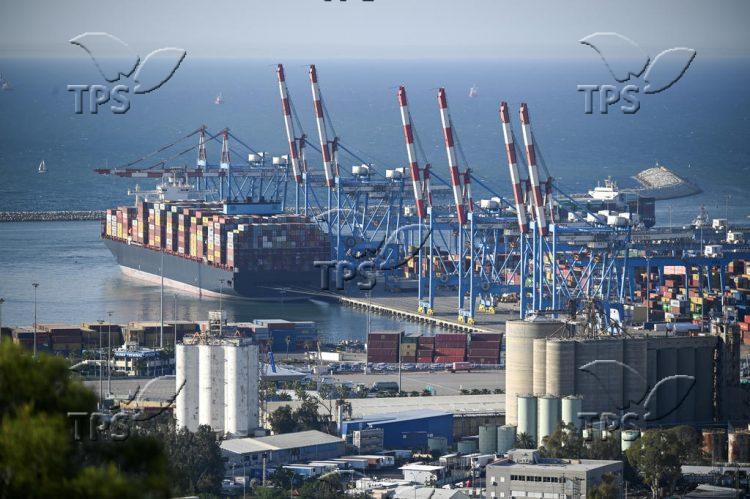Israel Poised to Become Key Transport Hub, But Will Strain Ties With China
Jerusalem, 10 September, 2023 (TPS) -- World leaders attending the G20 summit in New Delhi announced plans to create a transportation corridor between India and Europe via the Middle East. While the initiative would make Israel — particularly Haifa’s port — a key hub for delivering goods, it would also strain Israel’s ties with China, an analyst told the Tazpit Press Service.
Explaining his vision for the initiative, US President Joe Biden said on Saturday, “As — as a key part of this corridor, we’re going to invest in ships and rail that extends the India — that extends from India all the way to Europe, connected by the UAE, Saudi Arabia, Jordan, and Israel; bridging ports across two continents.”
The new initiative does not yet have a name, a time frame or a budget. But it raised fresh optimism in Jerusalem that a peace agreement with Saudi Arabia — a necessary precursor — may not be far away.
Israeli Prime Minister Benjamin Netanyahu threw his support behind the travel corridor at Sunday’s weekly Cabinet meeting.
“This vision, which is being advanced by President Biden together with the countries of Europe and the UAE, Saudi Arabia and others, of a transportation corridor of railways, maritime links, fiber optic cables and power lines, including natural gas and hydrogen (the energy of the future) that will pass from India, i.e. from Asia, through the Arabian Peninsula, through the State of Israel, to Europe — this is an immense change,” Netanyahu said.
“The land of Israel has always been a transit point for empires that trampled us in campaigns of conquest in every direction. Now the State of Israel has become a different kind of transit country. It has become a main junction in the global economy, a bridge of peace that is changing us,” he added. “We have already turned Israel into a global nexus in cyber, water and natural gas, and now we are doing this in transportation, energy and global communications. I think that this is a huge blessing.”
A rail link connecting Israel with Jordan and the Saudis, known as “Tracks for Peace” has been discussed on and off for several years.
And Haifa Bay would become a busier place. A consortium led by the Adani Group, an India-based international conglomerate, completed the $1.15 billion purchase of Haifa Port in January. The purchase is not related to the separate Chinese-operated Haifa Bayport Terminal across the bay, which has been a source of US concern.
Israel moved to privatize both of Haifa’s ports to boost the city’s profile as a hub for international shipping, bring down costs and upgrade the facilities.
Haifa’s Indian and Chinese-Run Ports
Dr. Lauren Dagan-Amoss, an expert on India who teaches political science at Bar-Ilan University, told the Tazpit Press Service that the initiative will create new strains on Israel’s relations with China.
Asked if the corridor would offset Chinese or Russian influence in the Mideast — particularly Beijing’s own “Belt and Road” initiative — Dagan-Amoss said the travel corridor would “reduce” the influence of China and Russia in the Middle East.
“Russia is very weak in the Middle East. China is very powerful,” she said. The initiative “Intends to reduce the power of China. India wants this. The US wants this.”
The $1.7 billion Haifa Bayport Terminal, operated by China’s state-owned Shanghai International Port Group, was inaugurated in 2021.
Dagan-Amoss told TPS that the G20 announcement means “traffic will go to the Indian run port. This will cause problems between Israel and China. Not big problems, but it will be a strain.”
A further complication, she said, is her fear that the Adani Group will not upgrade its Haifa Port in time.
“I don’t think they’ve started to work there,” Dagan Amoss said. “We’re counting on the Adanis. We gave them the port for less money, so it’s going to be a very big problem. I’m worried.”
Despite those concerns, the travel corridor’s significance for Israel is considerable, Dagan-Amoss stressed, explaining that that neighboring countries like Egypt and Jordan will have more motivation to collaborate with Israel.
“It means we are an important place for goods to move from A to B. It’s important to show that more Arabic countries want to do deals with Israel and with India,” she said.







